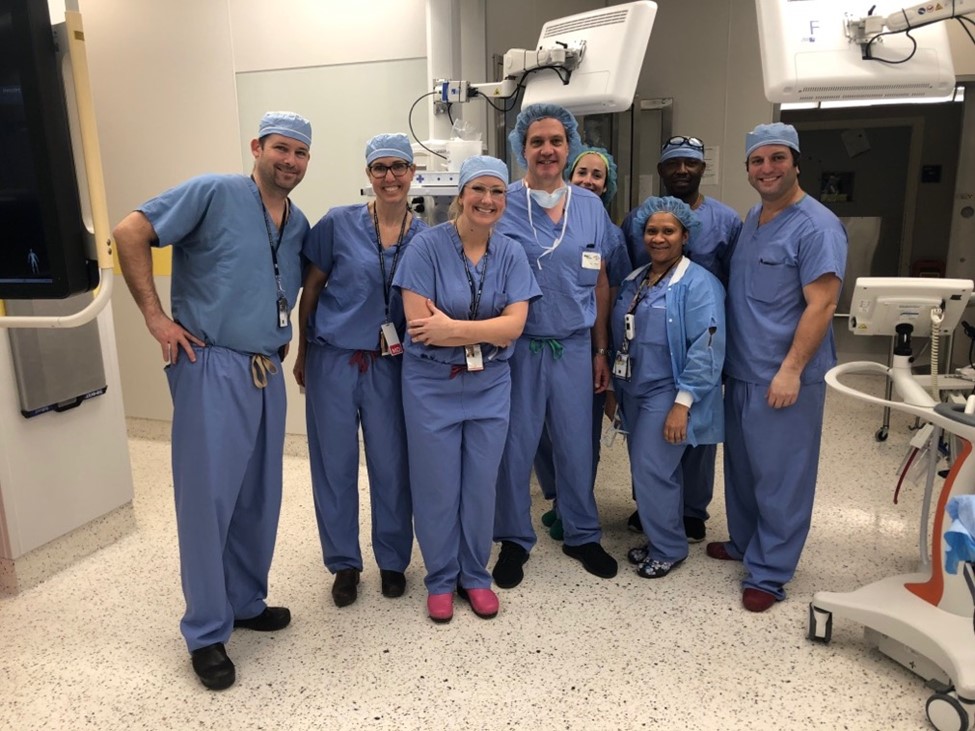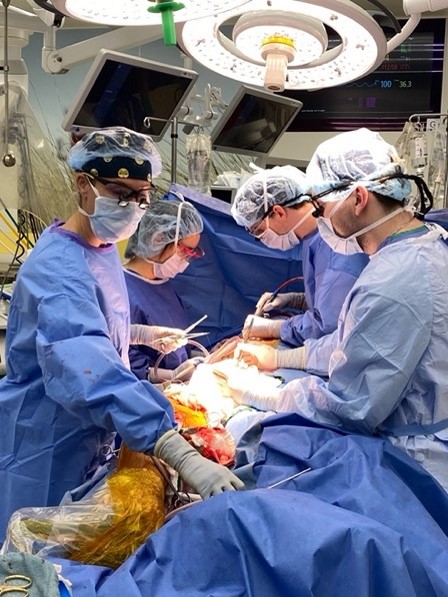Vascular Surgery at VA Boston healthcare
Learn about the types of procedures and services offered by Vascular Surgery at VA Boston Healthcare – West Roxbury
VA Boston healthcare is the primary location for care and treatment of vascular disorders in the New England area. We work hard to keep you and your vascular system healthy and well. The combined expertise of our vascular specialists allows us to provide you with collaborative compassionate vascular care tailored to your individual needs.
We offer a wide variety of traditional open and minimally invasive surgical procedures for the treatment of many vascular diseases including :
- Carotid artery disease including endarterectomy and trans-carotid artery revascularization (TCAR)
- Aortic aneurysm repair including endovascular aortic aneurysm repair (EVAR), thoracic aneurysm repair (TEVAR), and complex fenestrated endovascular aneurysm repair (FEVAR)
- Peripheral arterial disease with bypass surgery or endovascular treatment such as angioplasty and stenting
- Chronic venous insufficiency and varicose veins
What is Transcarotid Artery Revascularization?
TCAR is a minimally invasive (endovascular) procedure that can re-open a narrowed carotid artery and reduce the risk of a stroke. The surgeon makes a small incision on your neck over the carotid artery to gain access to repair the blockage. During the TCAR procedure, a balloon and stent are used to reopen the carotid artery and remove any debris from inside the artery.
The TCAR procedure is a good option for Veterans who have a higher risk of complications from traditional carotid surgery due to their age or other medical conditions. Not everyone is a candidate; your surgeon will go over all your options to help you select what is best for you.
TCAR: What to Expect
The TCAR procedure is done in the operating room on the West Roxbury campus. Your surgeon will discuss with you ahead of time your Anesthesia options available based upon your specific needs. You will also meet with the Anesthesiologist before the procedure. Your surgical team includes: a vascular surgeon(s), nurses, technicians, and a vascular anesthesiologist.
During the procedure:
- Your surgeon will make a small incision above your collar bone over your carotid artery.
- Then the surgeon inserts a tube into your carotid artery and attaches it to an advanced circulation system that temporarily reverses the blood flow. By directing the blood flow away from your brain, the surgeon can catch and remove any loose fragments before they can cause a problem.
- The filtered blood renters your body through a small tube inserted in the vein of your groin.
- The surgeon places a stent in your carotid artery. The stent opens the narrowed artery.
- The surgeon then removes the tube, reestablishes normal blood flow direction, and closes the incision with stiches.
TCAR: Recovery
Most veterans go home the day after the TCAR procedure. Plan to take it easy for at least a week before going back to your normal activities. You will receive individualized instructions for your care prior to going home. Your doctor will most likely recommend taking aspirin and other drugs (dependent upon your medical condition) to prevent blood clots, as well as other cholesterol lowering drugs.
A few weeks after the procedure, you will need to return to the VA for an ultrasound and a visit with your surgeon.
How to Make an Appointment
If you aren't currently being seen by Vascular surgery, you can be referred by your Primary Care Provider for an initial consultation. If you are already being followed by Vascular Surgery, please call the clinic directly at 857-203-6200.
Learn more about your Vascular surgeons at VA Boston healthcare system



